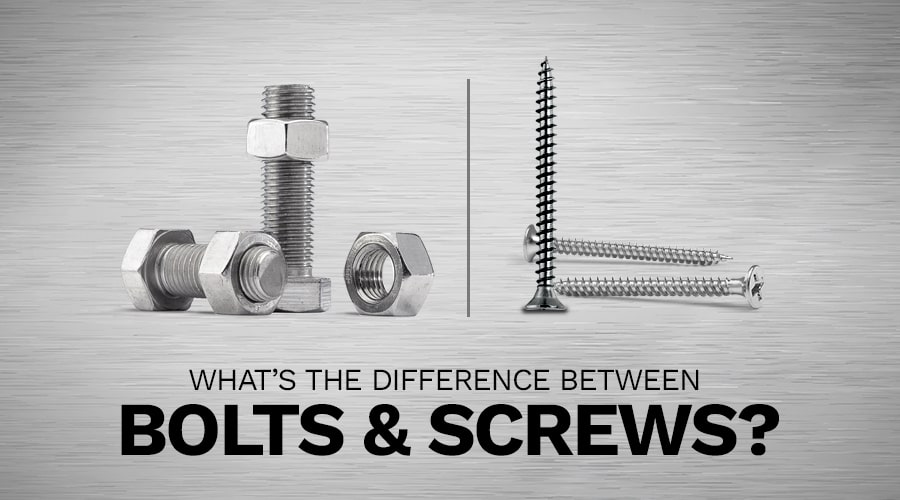


These days almost all people have come across objects that have required fasteners as their building blocks, but very few might have noticed the difference between the type of fastener used. Bolts and screws are such common items that they are used almost interchangeably in the fastener industry. These might have similar functionality but they are vastly different in terms of structure and applications.
The purpose of this write-up is to solve your confusion between the two fasteners and make you aware of making an informed decision based on your fastener requirements.
Screws are the foundational pieces of a large variety of objects in the construction, furniture and masonry industry. They find their applications right from the benches in a school to making modular kitchen furniture possible. Their construction mainly differs in the head and thread type like pan head, round head, slotted head, and hex head to being fully and partially threaded.
The key difference in screw functionality arrives mainly in their ability to pre-drill holes or make for the provision of pilot holes. Screws with pilot hole drilling ability are known as self-drilling holes while the one’s without are called self-tapping holes.
Screws possess non-uniform cross section and shank and are used for low to moderate load-carrying applications. They can be machine-driven or manually via a screwdriver. They have low clamping force requirements too.
As for specific differentiation with their bolt counterparts, they can be used to join or affix objects that may be threaded or unthreaded and for making lightweight furniture.
Bolts have been a staple in the fastener industry since the beginning of the industrial revolution. Their application has transcended sectors and industries for decades and is now used on a pan-industry basis. From automobiles to park benches, their usage has increased with time. Bolt construction also varies in head and shank terms. Some commonly used bolts are hex head bolts, carriage bolts, u bolts, blind bolts, eye bolts and flange bolts.
The main difference between bolts and other types of fasteners is that the former is used almost always in conjunction with nuts and washers. These two form an integral part of bolts usage and complement each other in terms of functionality.
Bolts possess a uniform cross-section and shank compared to screws and have higher reliability and durability too.
In terms of principal applications, bolts find usage in high load-carrying capacity requirements as with the combination of nut and washer they are able to handle loads with ease.
Bolts are used for the assembly of non-threaded objects, where high torque and clamping force requirements are there. One key advantage that bolts have over screws is that with the conjunction of nuts and washers, the chances of the creation of gaps minimize. This highly reduces the possibility of dust, dirt and moisture accumulation and leads to the formation of a strong and long-lasting joint.
As a side note, a common thing to keep in mind when machine-driving bolts is that, they are prone to vibrations and shocks, so the angle might get displaced while driving. This needs to be accounted for and handled with care.
Both bolts and screws have their unique uses and applications in the fastener industry and each has its own share in the market. However, with the right information and awareness, an informed choice can be made and the best possible type of fastener can be used.
The key difference between the two still pertains to usage in non-threaded or threaded applications and load-bearing capacities. With the right choice, the results would be exceptional. After all a strong foundation paves the way for a strong structure.
For best quality results and performance, it is highly advisable to get screws from LP Screw, the emerging stainless steel screw manufacturer in the fastener industry. With over a dozen types of stainless steel screws, a robust dealer network, premium range of finishes and optimum performance, the screw can’t get much bigger or better.
To be a first-hand witness to the results, try them once and be amazed by the performance and capability of these screws.